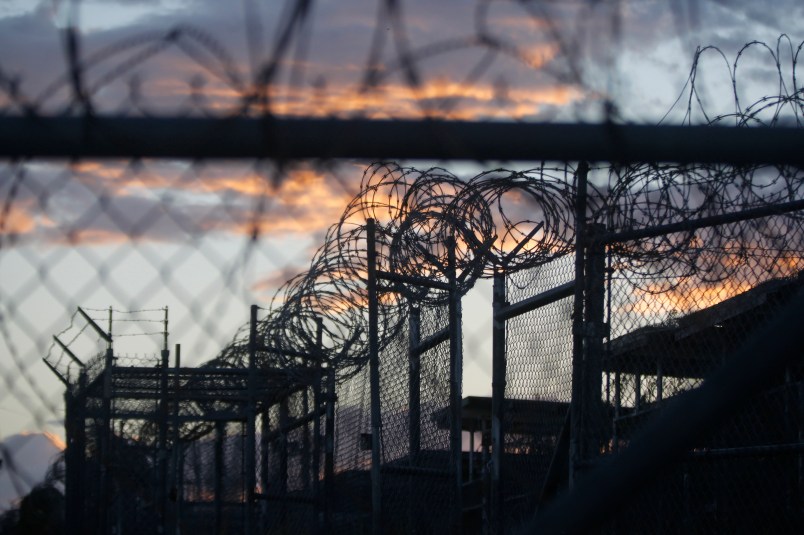FORT MEADE, Md. (AP) — The commander of a top-secret Guantanamo prison housing unit testified Wednesday that two court orders barring female guards from jobs requiring physical contact with certain Muslim detainees could jeopardize the safety of his operation by limiting his staffing options.
The Army officer testified for the prosecution under a pseudonym at a pretrial hearing for detainee Abd al-Hadi al-Iraqi, who says his faith prohibits Muslim men from having physical contact with females other than their wives or close relatives.
The government is contesting a military judge’s temporary order in November barring female guards from escorting al-Hadi to attorney-client meetings and court hearings. A similar ruling by another military judge earlier this month pertains to the five defendants in the Sept. 11 attacks.
Defense attorneys have argued that the government recently added women to the escort teams to humiliate the detainees and disrupt their ability to defend themselves. They want the temporary orders made permanent.
All six detainees are being held at Camp 7, which houses about 15 men deemed “high-value detainees” by the Pentagon.
The Camp 7 commander, a military police officer, testified it was hard to find enough soldiers with the necessary top-secret security clearance to staff the unit. A female guard, who also testified anonymously, said there are two females among the seven to nine guards who come into direct contact with detainees.
The commander said that removing females from escort teams results in more interaction between the remaining male guards and prisoners. He said those guards are more likely to become complacent or form relationships that could jeopardize the mission.
The commander said limiting the role of female guards also hurts their morale and advancement prospects
“That soldier feels they’re not part of this team,” he said.
“As much as it might seem like it’s a small thing, during a yearlong deployment here, if a male conducted 500 moves and that female counterpart only conducted 100 moves, you’re looking at evaluations and awards,” he said. “Someone’s getting a higher mark in there.”
Al-Hadi is accused of being an al-Qaida commander who organized deadly attacks on U.S. and allied forces in Afghanistan. He faces up to life in prison if convicted of the alleged war crimes. He appeared in court wearing a white tunic, headdress and a long, gray beard.
Copyright 2015 The Associated Press. All rights reserved. This material may not be published, broadcast, rewritten or redistributed.



